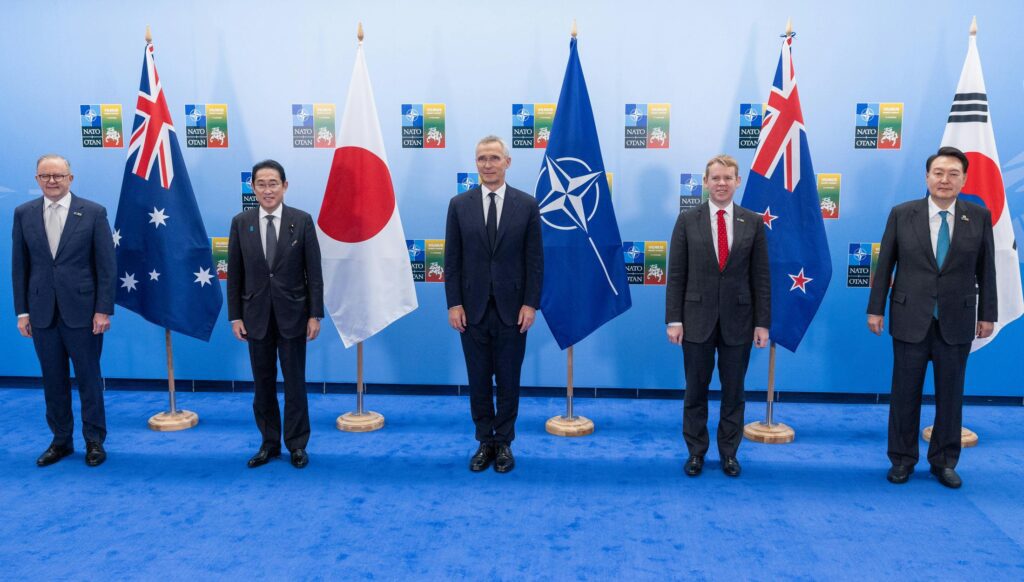NATO’s Partnerships: Building Security Cooperation Beyond Member Countries
NATO’s partnerships with countries outside of its member states are essential for strengthening security cooperation, promoting stability and peace, and addressing global security challenges. Through initiatives like the Partnership for Peace and the Mediterranean Dialogue, NATO works closely with partner countries to enhance military capabilities, address common security challenges, and promote democratic values.
The benefits of NATO partnerships extend to both NATO and its partner countries, including enhanced regional stability, improved defense capabilities, and the opportunity to work together to uphold international peace and security. These partnerships play a crucial role in promoting peace, security, and stability worldwide, making the world a safer place for all.
NATO’s Partnerships: Building Security Cooperation Beyond Member Countries
As one of the world’s premier security alliances, NATO has long recognized the importance of building partnerships with countries outside of its member states. These partnerships are essential for strengthening security cooperation, promoting stability and peace, and addressing global security challenges that transcend borders. NATO’s partnerships with other countries are based on shared values, mutual interests, and a commitment to upholding international peace and security.
The Partnership for Peace
One of NATO’s key partnership initiatives is the Partnership for Peace (PfP) program, which was established in 1994 to enhance security cooperation with countries in Central and Eastern Europe, the Caucasus, and Central Asia. Through the PfP program, NATO works closely with partner countries to promote democratic values, enhance military capabilities, and improve interoperability with NATO forces.
The PfP program allows partner countries to participate in NATO exercises, training activities, and military cooperation initiatives. It also provides a framework for political dialogue, consultation, and cooperation on security issues. The PfP program has been instrumental in promoting stability and security in Europe and beyond, by helping partner countries build strong and capable military forces, improve defense capabilities, and strengthen their resilience to security challenges.
The Mediterranean Dialogue
Another important partnership initiative by NATO is the Mediterranean Dialogue, which was established in 1994 to enhance security cooperation with countries in the Mediterranean region. Through the Mediterranean Dialogue, NATO works closely with partner countries in North Africa and the Middle East to address common security challenges, promote regional stability, and enhance security cooperation.
The Mediterranean Dialogue provides a forum for political dialogue, consultation, and cooperation on security issues, as well as opportunities for military cooperation, joint exercises, and training activities. NATO’s partnership with countries in the Mediterranean region has been instrumental in promoting stability, enhancing security, and addressing security challenges such as terrorism, extremism, and migration.
Other Partnership Initiatives
In addition to the PfP program and the Mediterranean Dialogue, NATO has established partnerships with other countries and organizations around the world. These partnerships are based on common interests, mutual goals, and a shared commitment to promoting international peace and security.
Some of NATO’s other partnership initiatives include the Istanbul Cooperation Initiative, which aims to enhance security cooperation with countries in the Gulf region; the Partners Across the Globe program, which aims to strengthen cooperation with countries in Asia, the Pacific, and Latin America; and the Enhanced Opportunities Partnerships, which allow certain partner countries to deepen their cooperation with NATO through increased access to NATO exercises, training, and information sharing.
Benefits of NATO Partnerships
NATO’s partnerships with countries outside of its member states provide a number of important benefits for both NATO and its partner countries. These partnerships promote peace and security, enhance regional stability, and strengthen international cooperation on security issues. They also help partner countries improve their military capabilities, enhance their defense capabilities, and build strong and capable military forces.
By working closely with partner countries, NATO is able to address common security challenges, promote democratic values, and uphold international peace and security. NATO’s partnerships also provide an opportunity for countries around the world to contribute to global security efforts, enhance their security cooperation with NATO, and promote stability and peace in their regions.
Conclusion
NATO’s partnerships with countries outside of its member states play a crucial role in promoting peace, security, and stability around the world. These partnerships help partner countries enhance their security capabilities, strengthen their defense capabilities, and address common security challenges. They also provide an opportunity for countries to work together with NATO to promote democratic values, uphold international peace and security, and address global security challenges that transcend borders.
Through its partnership initiatives, NATO is able to build strong and cooperative relationships with countries around the world, promote regional stability, and enhance international security cooperation. By working together with partner countries, NATO is able to address common security challenges, promote democratic values, and uphold international peace and security, making the world a safer and more secure place for all.
